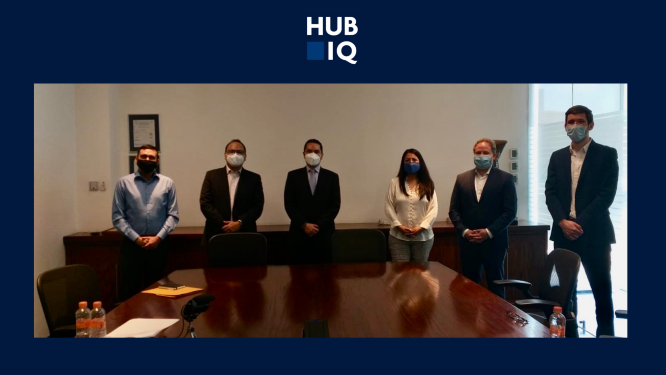The links and alliances between sectors that make up the innovation ecosystem allow connections to be made, fostering dialog about common goals such as the strengthening of local competencies through technological innovation in sustainable energy and new cooperation models. This is the way HUBIQ—Hub de Innovación Tecnológica (Technological Innovation Hub) addressing sustainable energy in the state of Querétaro—has enabled the creation and promotion of these links between a range of actors such as businesses, the government, academia, MSMEs, start-ups, and entrepreneurs, driving the energy transition in the state and thus contributing to Mexico’s climate goals. HUBIQ was fostered by the Deutsche Gesellschaft für Internationale Zusammenarbeit (GIZ) GmbH through the Enhancing the Coherence of Climate and Energy Policies in Mexico project (CONECC), and the Ministry of Sustainable Development of the State of Queretaro (SEDESU).
Recently, HUBIQ was legally established as a Civil Association (A.C.), a milestone for the project. This means that it can strengthen its role as an actor in the local and regional innovation ecosystem. Representatives of HUBIQ, the CONECC project, and Queretaro Energy Cluster, and LiCore A.C. company participated in the signing of the founding documents. They are founding partners and key allies in the formation of the Hub. Other prominent members of the Hub’s Advisory Board include Rosalba Cobos from Mabe’s Technology Center in Querétaro and Dr. Yunny Meas Vong, member of the Electrochemistry Technology Research and Development Center (CIDETEQ).
This is a breakthrough for the project as it positions itself as a platform connecting local innovation actors. It also fosters collaboration for climate action and bolsters sustainable energy technologies and business models in the state.
As a result of this, HUBIQ is in the strategic planning process to define its next steps and activities within the innovation ecosystem. These include fostering alliances with other innovation ecosystems, continuing the Technological Acceleration Program for MSMEs and start-ups, and the publication of a manual for implementing technological innovation hubs addressing renewable energy and energy efficiency. The aim is to communicate the steps and activities to consider, as well as the lessons learned, and to support the replicability of this innovation experience in the country.
The HUBIQ will soon participate in discussions about the CONECC project on technological innovation and innovation ecosystems for climate action and the sustainable and inclusive energy transition nationally, sub-nationally, and regionally. It is aligned with a sustainable socio-economic post-pandemic recovery.



